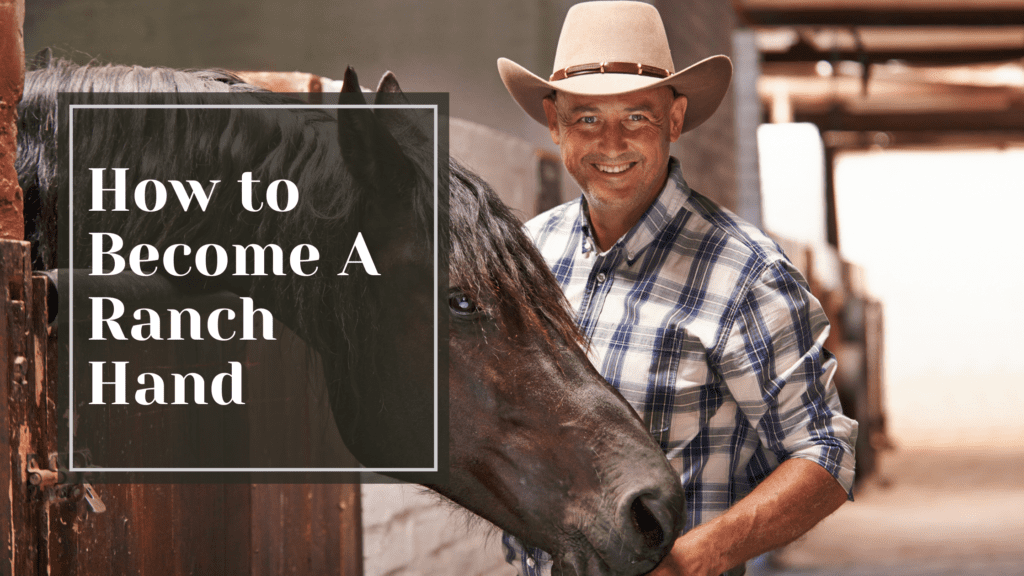As someone looking for an exciting career working outdoors, becoming a ranch hand or cowboy could be an ideal path for you. Spending your days riding horses, mending fences, and herding cattle under open skies sounds appealing. However, it requires certain skills and experience to become a ranch hand. If you’re willing to work hard at a demanding job and build the necessary expertise, you’ll find ranching a rewarding career. Let’s dive into it.
Table of Contents
ToggleGain Relevant Experience by Working on a Ranch
Apply for entry-level jobs on local ranches, such as a farmhand, wrangler, or general laborer. These roles will expose you to the day-to-day operations of a ranch and allow you to gain hands-on experience in areas like:
Animal Husbandry
Feeding, watering, and looking after livestock such as cattle, horses, sheep, and goats. You will learn proper nutrition, healthcare, and handling of the animals.
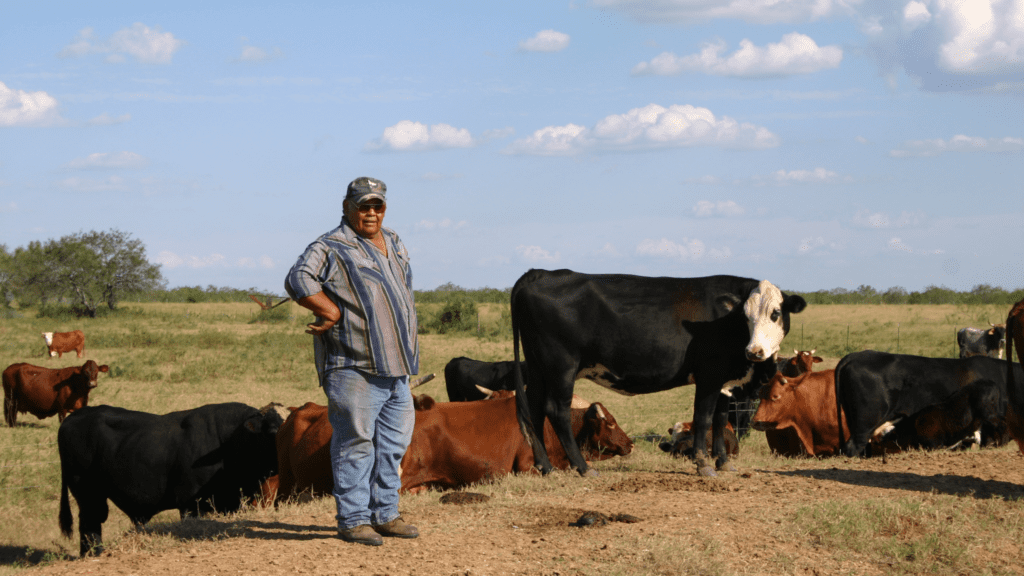
Fencing
Installing and repairing fences is crucial work on a ranch. You will learn skills such as measuring, cutting, and setting fence posts, as well as techniques for mending damaged fencing.
Equipment Operation
Ranch hands frequently operate heavy equipment such as tractors, balers, combines, and more. Any opportunity to operate equipment will build your skills and make you a more attractive job candidate.
General Maintenance
There are always tasks to be done to maintain ranch buildings, equipment, and property. Experience with carpentry, landscaping, cleaning, and repairs will serve you well as a ranch hand.
Be a hard worker. Show up on time, follow instructions carefully, take initiative, and maintain a positive attitude. Ranch work is physically demanding, often in difficult weather conditions. Proving yourself as a diligent and determined worker is the best way to get hired for future roles with greater responsibility.
Develop Useful Skills for Ranch Work
First, learn how to properly handle livestock. This includes learning how to safely restrain animals for medical treatment, how to drive herds from one location to another, and how to ensure the overall health and welfare of the animals. You should become very comfortable working around large animals like cattle, horses, goats, and sheep.
Second, become proficient with equipment used on a ranch. This includes ATVs, tractors, balers, and mowers. You should know how to properly hitch equipment to trucks and tractors. You should also know how to operate, maintain, and perform basic repairs on common ranch equipment.
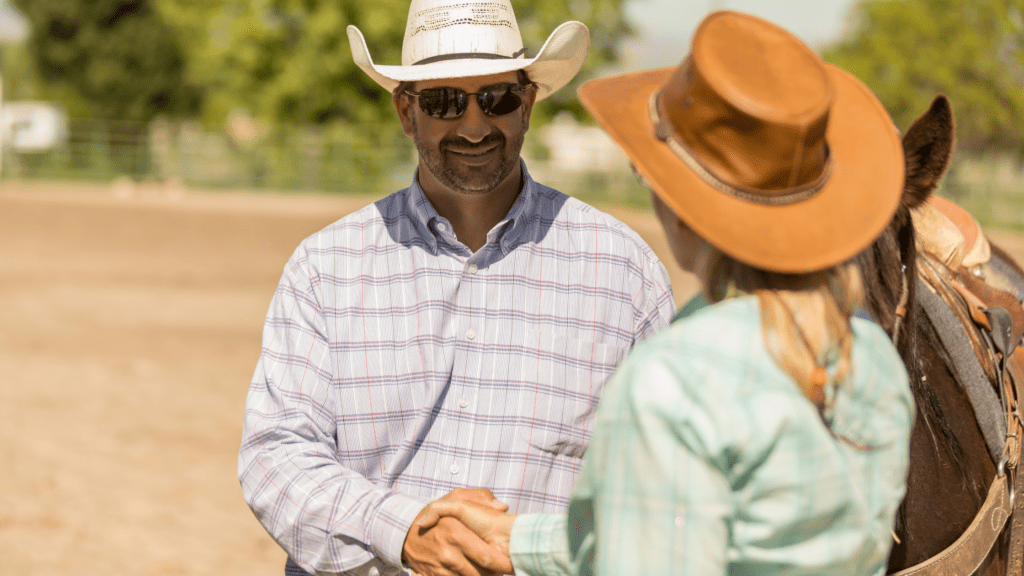
Third, develop practical skills like fencing, irrigation, and general maintenance. This includes learning how to install and repair barbed wire or wooden fencing, set up and manage sprinkler systems, and perform building repairs or equipment maintenance. These skills will be invaluable to keeping the ranch running smoothly.
In addition, learn basic veterinary skills like how to spot common illnesses or injuries in livestock and how to administer basic first aid and medications. You should also become certified in CPR in case of emergencies.
Earn Certifications and Licenses to Become A Ranch Hand
Certification in CPR and First Aid
As a ranch hand, you may frequently work alone or in remote areas. Certification in cardiopulmonary resuscitation (CPR) and first aid prepares you to properly respond in emergencies. Courses are offered through the American Red Cross and American Heart Association.
Certification in Horsemanship
For working with livestock, certification from an accredited horsemanship association proves your ability to handle horses and perform ranch work. The Certified Horsemanship Association and Equine Science Center both offer programs resulting in certification. Coursework covers horse handling, safety, equipment, and riding.
Commercial Driver’s License
A commercial driver's license (CDL) allows you to operate heavy-duty vehicles to transport livestock, hay, and equipment. The specific CDL class required depends on the types of vehicles you will drive. You must meet licensing age requirements, have a clean driving record, and pass knowledge and driving skills tests.
Pesticide Applicator License
- You may handle and apply agricultural pesticides and herbicides as a ranch hand. Most states require certification or licensing to apply pesticides commercially. You must complete an approved training program and pass an exam to demonstrate knowledge of proper handling, application, storage, and disposal of pesticides.
Create a Solid Ranch Hand Resume
To become a ranch hand, you’ll need to create a solid resume highlighting any relevant experience, skills, and qualities that would make you a strong candidate. Focus on the following:
Relevant Experience for Ranch Hand
Detail any experience you have with ranching responsibilities like:
- Feeding and watering livestock
- Grooming and exercising horses
- Repairing fences or equipment
- Herding cattle
- Assisting with branding, dehorning, castrating, and other veterinary procedures
Include the number of months or years you have spent performing these tasks. Ranching is hands-on work, so concrete experience is valued.
Key Skills
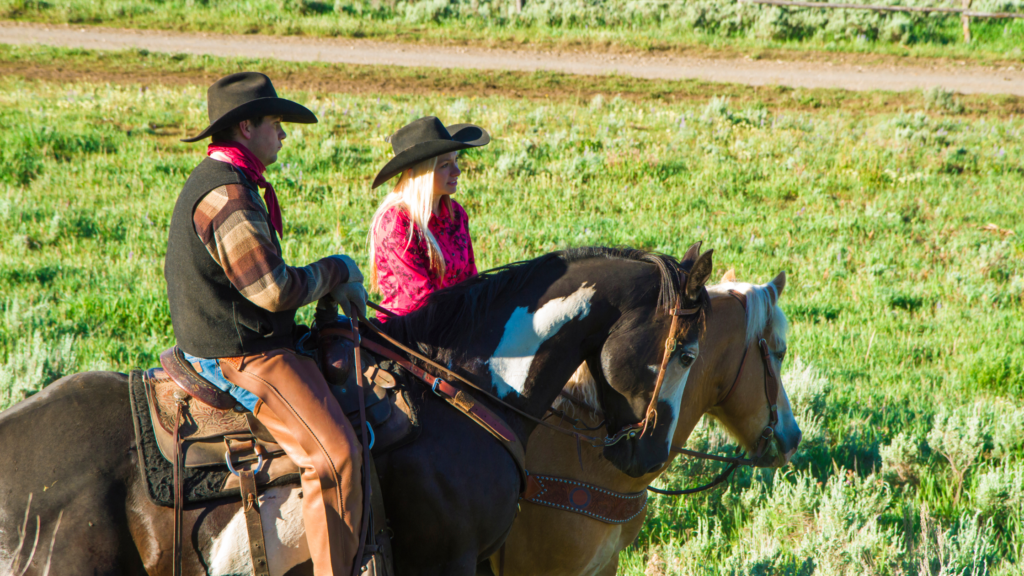
Emphasize useful skills such as:
- Riding and handling horses
- Operating farm vehicles and equipment like tractors safely
- Performing physical labor for long hours in variable weather conditions
- Basic maintenance and repair of fences, barns, and equipment
- Monitoring livestock and pastures
- Adhering to safety standards to avoid injury
Relevant Qualities
Highlight qualities and characteristics suited to ranching such as:
- Physical fitness and stamina
- Responsibility and reliability
- An ability to work independently or follow instructions
- A willingness to work long hours, especially during peak seasons
- Proficiency in basic animal health procedures and knowledge of livestock care
- Adaptability and problem-solving skills to handle any issues that may arise
Search for Ranch Hand Job Openings
Once you have the necessary experience and skills, it’s time to search for ranchhand jobs. There are several ways to find openings:
Online Job Sites
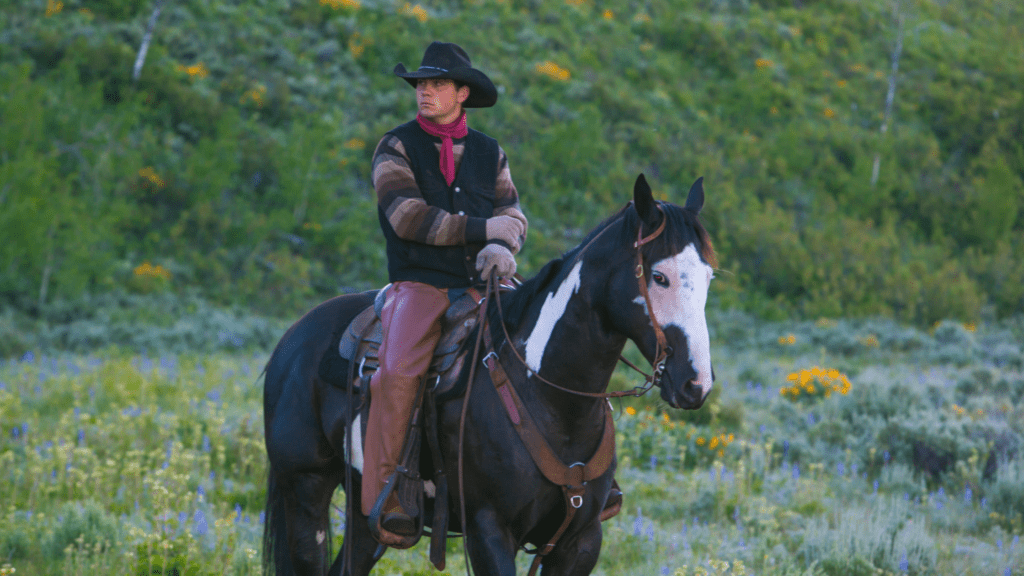
Sites like Indeed, Monster, and Craigslist frequently have listings for ranch hand positions. Search for terms like “ranch hand,” “farm worker,” “stable attendant,” or “wrangler.” Be sure to check listings in rural, agricultural areas within your desired region.
- Review job descriptions and requirements carefully. Make sure you meet the necessary qualifications before applying.
- Create an eye-catching resume highlighting your relevant experience, skills, and education. Emphasize transferable skills that would benefit a ranch like physical stamina, work ethic, and ability to follow instructions.
Local Resources
Don’t overlook local resources for job
Local ranches and farms
Do some research online or drive around the area to identify ranches. Contact them directly to inquire about any job openings and express your interest. Even if they have no current openings, they may keep your information on file for the future.
Feed stores and agricultural supply shops
These businesses interact regularly with local ranchers and may know of jobs not yet advertised. Stop in and speak with the owners or managers, leaving your resume in case any opportunities arise.
County extension office
Check with your county’s agricultural extension office. They work closely with local ranchers and may have resources for job seekers. They may also be able to connect you with ranching organizations in the area.
Newspaper classifieds
Don’t overlook the classified job listings in local newspapers. While print advertising is declining, many small and rural employers still rely on local papers to list job openings.
How Much Do Ranch Hands Make?
Salary Range
As a ranch hand in the U.S., you can expect to make between $10 to $16 per hour. Exact wages will depend on factors like:
Your experience and skills
More experienced hands with additional skills like welding, mechanics, or animal husbandry can make up to $30,000 annually.
Job responsibilities
Hands with more responsibilities, such as equipment operation or managing other workers may earn $25,000 to $35,000 per year.
Geographic location
Ranches in areas with higher costs of living and wage standards like California or Colorado typically pay more than ranches in lower-cost states.

In addition to your base salary, most ranch hands receive free or low-cost housing, utilities, and meals as part of their compensation package. Some ranches may also offer health insurance, retirement plans, and other benefits.
Types of Pay for Ranch Hand
Ranch hands are often paid:
- An hourly wage for routine chores like feeding animals, maintaining fences, and equipment upkeep.
- A daily rate for tasks that require long hours like branding, shipping cattle, or haying.
- Bonuses for meeting key performance indicators or productivity goals.
- Overtime pay of 1.5 times your normal hourly rate for any hours worked over 40 per week.
The specific pay structure will depend on the management style of the individual ranch. Some provide steady work and income throughout the year, while others may pay higher seasonal wages during busier times. The key is to fully understand the compensation package, including any variable pay components, before accepting a position.
How to Become a Ranch Hand
To become a successful ranch hand or cowboy, you need to be passionate about working with animals and the outdoors. Obtaining the necessary skills and experience, developing physical endurance, and building a professional network will prepare you for a rewarding career on the ranch. Seize the opportunity and forge your path. The adventure starts today.

